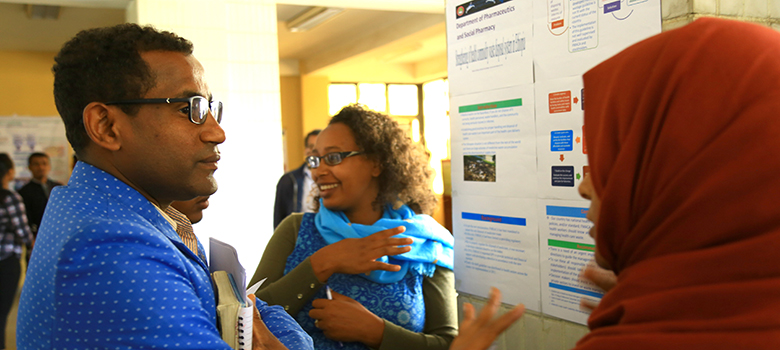"Our school has benefited a lot from the support of GHSC-PSM in the delivery of a public health leadership, management and governance module for students pursuing master’s degrees. It was a great capacity building opportunity for us. We learned how to make students feel at ease and stay motivated throughout the session with proper time management and new pedagogic techniques,” AAU lecturer Dawit Teshome said.
In addition to new teaching methods, GHSC-PSM introduced curriculum development methodology to the AAU faculty. Using the methodology, faculty were able to set clear learning objectives and administered an assessment at the end of the course to see if students achieved those objectives.
Finally, the module culminated in a professional networking day to link students and faculty with supply chain professionals from government agencies, consulting firms, and pharmaceutical manufacturers and importers. Students presented posters on supply chain topics in the Ethiopian context and mingled with AAU alumni and others working in health supply chains to hone their public speaking skills and make professional connections.
The varied teaching methods and systematic approach to curriculum development helped faculty to broaden their scope of what is possible for effective teaching. These methods are not only being implemented in AAU’s School of Pharmacy, but faculty are also sharing this knowledge with colleagues from other disciplines within the university.
GHSC-PSM is exploring opportunities to provide similar support to Ethiopia’s Jimma University and plans to develop another supply chain module for AAU in the coming years.
